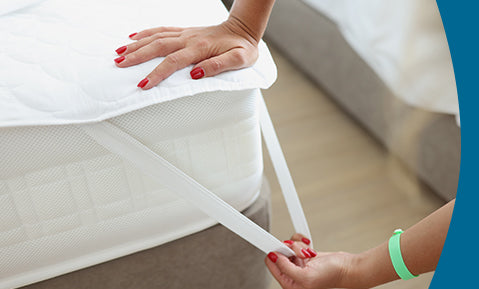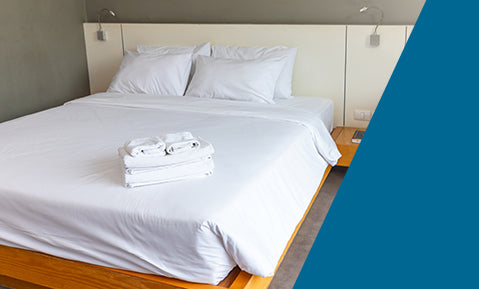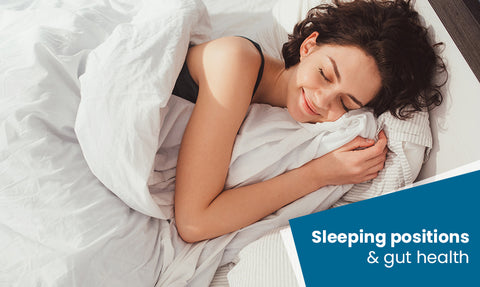
Are you struggling with your sleep of late? Have you tried many ‘remedies’ to get over it only to get ‘sick and tired of them all? Well, maybe it’s time you pay attention to something called ‘ sleep hygiene.
Ever heard of it? Don’t bother! Just go through this blog. We will tell you what sleep hygiene is all about and what it can do for you. We will also share some smart tips on how to maintain sleep hygiene.
Let’s start then!
What Does Sleep Hygiene Mean?
Sleep hygiene is nothing but maintaining healthy sleep habits. It can be defined as the behaviors or habits you should develop to promote good sleep. Having strong sleep hygiene refers to having a routine and bedroom environment that facilitates uninterrupted, consistent sleep.
Maintaining a stable sleep routine, following a relaxed pre-bed routine, making the bedroom free of disruptions, and developing healthy habits during the day can just be some contributors to ideal sleep hygiene.
Why is Sleep Hygiene Important?
A night of healthy sleep is extremely vital for both our mental and physical health. It can relieve us from stress and keeps us in a positive frame of mind. With a positive mind and rejuvenated mental health at our disposal, we are better equipped to fight the challenges thrown in by life. Sleep hygiene can contribute a great deal to achieving a night of healthy sleep.
As discussed above, strong sleep hygiene is synonymous with forming good habits. Forming beneficial and sustainable routines help developing healthy behaviors and this, in turn, creates a continuous process of building a positive mindset. Sleep hygiene also encompasses building an environment to promote healthy sleep. Together, they can ensure uninterrupted sleep and resulting health benefits.
4 Sleep Hygiene Tips For a Better Sleep
Here are 4 handy tips you can follow to improve your sleep hygiene-
Maintain a Consistent Sleep Schedule

Having a consistent sleep schedule is the key to normalizing your sleep. Here is how you can start-
Sleep and wake up almost at the same
Irrespective of whether it’s a weekend or weekday, make it a habit to hit the bed and get out of it almost at the same time. This is important to reinforce the sleep cycle in your body. This way, your internal clock will get tuned to your sleeping duration.
- Go easy on your sleep adjustments: If, for some reason, you need to alter your sleep times, don’t do that at one go. Instead, make minor and gradual adjustments (maybe by an hour or so). Give your internal clock enough time to settle into the new schedule.
- Keep your sleep on high priority: Your work, study, or social events may tempt you to skip sleep at times. But, you should keep sleep on high priority. Fix your bedtime and do whatever you can to hit the bed near that time.
- Mind your bedtime routine: The way you manage your bedtime routine can determine how easily you would be able to sleep. Try to follow the same steps each and every night, 30 to 45 minutes before you sleep. It will help your body recognize that you are nearing bedtime.
The steps may include one or more of the following
- Take a shower. It will lower your body temperature and cool you down before you sleep.
- Do something that relaxes you further before you sleep. It may include listening to soft music, reading, or doing some meditation/relaxation exercises.
- Dim your lights. Bright lights can hinder the secretion of the melatonin hormone that the body produces to facilitate sleep.
- Stay away from electronic devices at least 45 minutes prior to hitting the bed. Devices such as tablets, laptops, and cell phones are known to cause mental simulation. Also, the blue-ray coming from these devices may hinder the production of melatonin.

Optimize Your Bedroom
Your sleep environment is a crucial component of sleep hygiene. A bedroom that radiates tranquility is more conducive to sleep. Also do make your bed each time you go to sleep.
Use the following tips to make your bedroom calm and tranquil,
- When you hit the bed, the blankets and sheets are usually the first things you put your hands on. Make sure they suit your preferences.
- Choose your pillow and mattress wisely. Your sleeping surface should be able to provide pain-free and comfortable sleep. Opt for a shredded memory foam pillow if your pillow is not able to give you a proper sleep.
- Use heavy curtains to prevent lights from obstructing your sleep. You can also use an eye mask for this purpose.
- If you are often troubled by outside noise while sleeping, use earplugs to keep bothersome sounds away. You can also use a fan or a white noise machine for this purpose.
Cultivate Healthy Habits

It’s not always about the nights. Incorporating healthy habits during the daytime can also help improve your sleep hygiene and reduce sleep disruptions.
Some healthy habits you can cultivate are as follows-
- Expose yourself to some sunlight (if you work all the time indoors). Sunlight is regarded as one of the primary drivers that encourage quality sleep.
- Exercise regularly and remain physically active.
- Abstain from smoking. Nicotine is said to stimulate the body enough to disrupt your sleep.
- Reduce alcohol consumption. You may find it easier to fall asleep after a ‘bout’ of alcohol but, your sleep will get disrupted once its effect wears off.
- Reduce your caffeine intake, especially later in the day. Caffeine can only keep you stimulated even when your body wants to sleep.
If you are struggling to get a good slip and wondering when you are going to get one, it’s time to give sleep hygiene a shot! Improving sleep hygiene involves no risk and little cost. Therefore, you should make it an integral part of your overall health strategy. From the discussion above, you may have got the idea that it’s not quite tough to do so. It’s all about pondering over how your habits prevent you from a night of quality sleep and what you need to do to change them.












